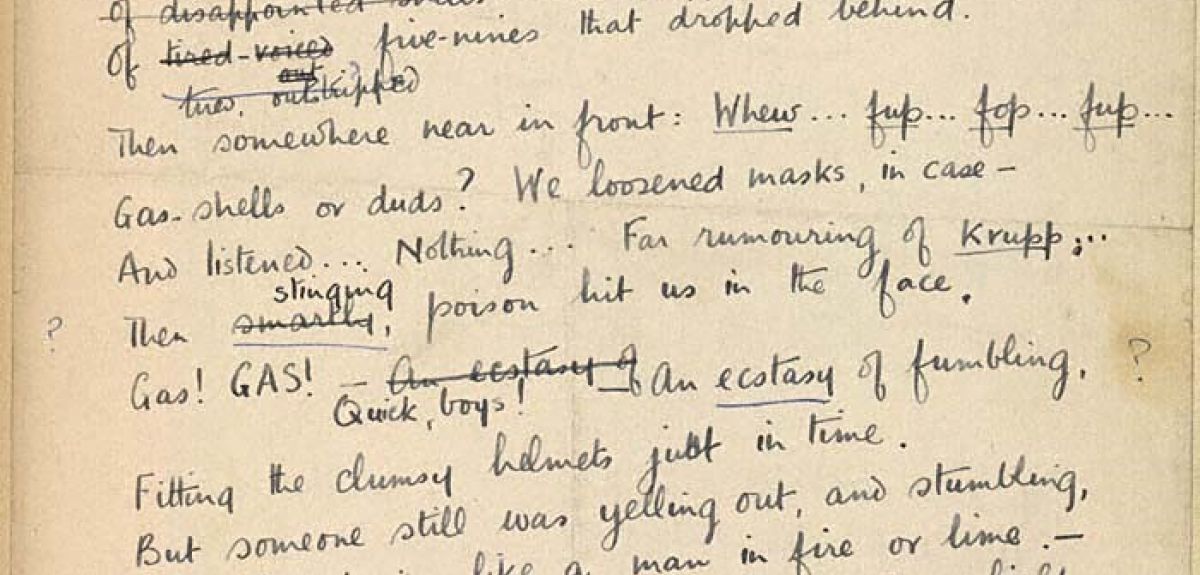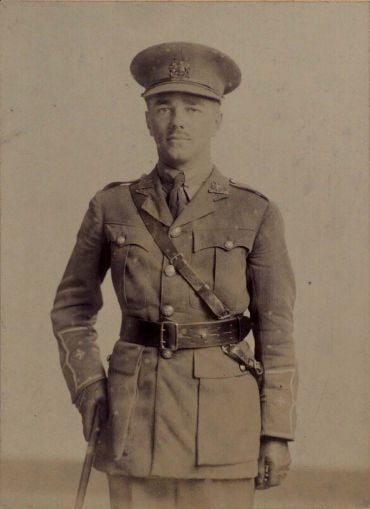
The British Library / The Wilfred Owen Literary Estate
The Last Days of Wilfred Owen
By Stuart Lee
Often heralded as one of the finest poets of the First World War, Wilfred Owen has become a symbol to many of 1914-1918 encapsulating a sense of futility (the title one of his more famous poems), anger, and despair at the suffering endured by the soldiers. This is not without challenge of course. Owen’s was only one voice representing one point of view and cannot be seen to capture the myriad of views and feelings of all the combatants and his generation, but at the same time that is not sufficient reason to dismiss his work as irrelevant to the study of the War.
To commemorate the centenary of the last days of the First World War Poet Wilfred Owen, the University of Oxford’s Faculty of English is posting a daily tweet account of Owen’s last fortnight – @ww1lit using #OwenLastDays – from 22 October to 4 November. Each tweet will detail the activities of Owen and his battalion – 2nd Manchester – as they prepare for the attack. The posts highlight the wealth of free online resources the University has shared online based around Owen and the other war poets under the First World War Poetry Digital Archive and Great Writers Inspire, including podcasts, images of Owen’s manuscripts and letters, film clips, and online exercises.
 Wilfred Owen
Wilfred OwenEnglish Faculty Library, University of Oxford / Wilfred Owen Literary Estate
Owen’s battalion was part of the spearhead used to break the final German defensive line after a series of Allied advances following success at Amiens in August. A key problem was to overcome the Sambre canal defences and gain the Eastern bank, and on 4th November at 5.45am Owen was involved in the attempt to cross. The exact details of that morning are hazy, and all that is known is that Owen was seen leading and encouraging his men in the early part of the struggle, but was killed, possibly as he crossed the water on a raft, sometime between 6 and 8.00am. Famously the telegram notifying his family of his death arrived mid-day on November 11th as the celebrations around the Armistice rang out.
The Faculty of English has also launched a nationwide competition for schools to present work (either a poster or recorded performance) on the Legacy of Wilfred Owen (closing date noon, November 30 2018). Prizes include books and vouchers, with the support of Penguin Books who have generously donated editions of Owen’s poems as prizes.